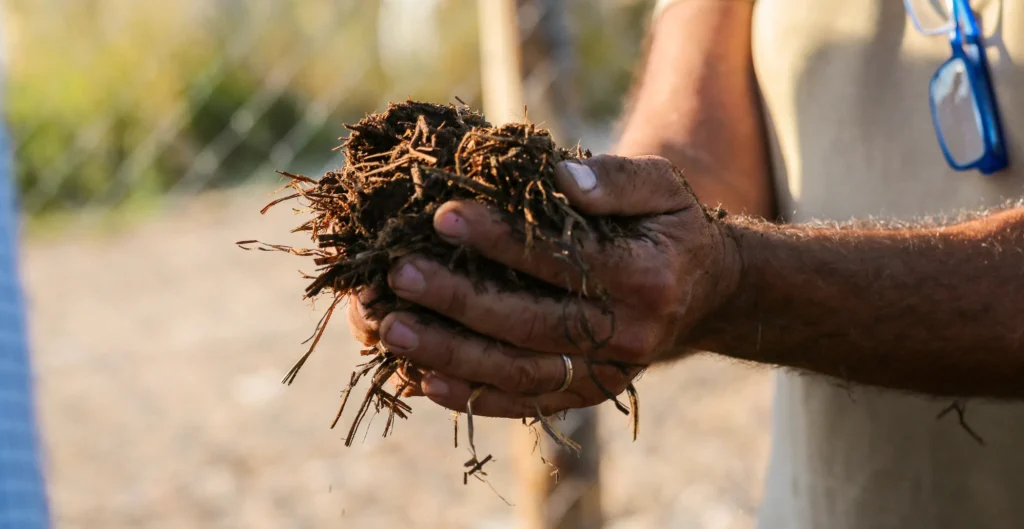The Key to Healing Our Planet and Securing Our Future
While some search for life on Mars, we must focus on protecting and regenerating life on our own planet. Farmers are the true stewards of our land, and they need our support — not with vague promises but with clear standards that define what is truly regenerative and what is just another marketing ploy.
Too often, regenerative has become a buzzword, co-opted by big players who sell rather than restore, stripping it of its roots in agroecology and ecosystem regeneration. If we allow this to continue, we risk losing the most essential resources for human life: healthy soil, clean water, biodiversity, and thriving rural communities.
At Davos, I witnessed how corporate narratives on regenerative agriculture are crafted in boardrooms, often detached from the fundamental principles guiding real action. There is a growing disconnect between what is being promoted as regenerative and what contributes to ecosystem restoration. If this continues, we will face yet another cycle of greenwashing — one that gives the illusion of change while the status quo remains largely unchallenged.
The risk now is that regeneration becomes just another nice narrative while the real opportunity — the one that can heal our food systems — is lost in the noise. This is not just about carbon credits or isolated sustainability initiatives; it is about a radical transformation of our entire approach, first of all to life, then to food production and land management.
The future of food is being shaped now, and it demands more than just incremental changes. It requires a fundamental shift in both models and mindsets — a systemic transformation that regenerates not only the land but also the way we produce, consume, and value food.
The Movement of Farmers Is Responding
Amidst this growing urgency, farmers are not waiting for change to be dictated from above. They are taking action. In Italy, for example, a new movement is emerging to reclaim the true meaning of regenerative agriculture. The Associazione Nazionale Produttori per l’Agricoltura Organica e Rigenerativa (Produttori AOR) is not just another certification — it is a collective response to the extractive agricultural model that has depleted soils and disrupted ecosystems for too long.
AOR unites farmers, citizens, and organizations committed to healthy food, economic sustainability, soil regeneration, and biodiversity protection. It promotes regenerative techniques, facilitates knowledge exchange, and actively collaborates with institutions to shape agricultural policies. Unlike many sustainability labels, AOR is based on a participatory guarantee system, where farmers monitor and improve their practices using measurable indicators of soil fertility, water management, and biodiversity.
This initiative will be officially presented on February 6, 2025, at Patagonia Milano, launching a much-needed dialogue between regenerative farmers, policymakers, and sustainability leaders. This is a critical step toward scaling regeneration as a concrete, measurable, and inclusive solution — one that restores balance between nature, communities, and the future of food.
From Words to Action: Cilento, Roots, and Legacy for Future Lands
At the Future Food Institute, we are not waiting for change — we are actively building it. Through the project “RegenerAction — 500 Pollica” and the Future Lands Initiative, we are transforming marginal territories into living labs of sustainability, proving that regeneration is not just a concept but a replicable reality.

